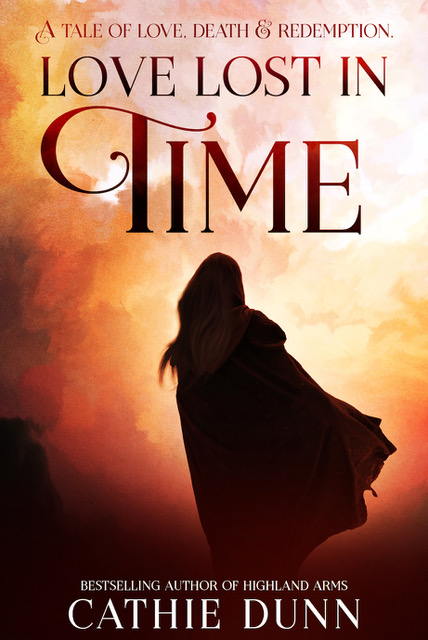Publication Date: 8th September 2018
Publisher: Independently Published
Page Length: 106 Pages
Genre: Historical Fiction
The Tudor Era has dawned. Richard III lies in a shallow grave at Greyfriars in Leicester and Henry Tudor sits upon an uneasy throne.Richard's illegitimate daughter, Katherine Plantagenet, wife of one year to William Herbert, Earl of Huntingdon, struggles to find her path in the strange new world of Tudor England. Only fifteen years old, she fears her husband will put her aside due to her relationship to the deposed King.Frightened and alone, she recalls the events of her younger years, when Richard, Duke of Gloucester took her and her half-brother John to be raised at Sheriff Hutton Castle. Days when it seemed a baseborn girl could reach dizzying heights...Days of happiness before her father took the crown, before her cousins Edward and Richard vanished from the Tower of London, before beautiful Elizabeth of York danced in gold at the Christmas Feast of 1484 and started rumours flying...
If you would like to be in with a chance to win a paperback copy of J.P. Reedman's fabulous book The White Rose Rent then all you need is to pop your name in the comment section at the bottom of this post (Scroll Down)
Giveaway is now closed.
* Giveaway open to UK & European residents only!
*Giveaway closes on January 4th 2021


When someone mention medieval sheriffs, the first thing that pops into one’s mind is usually Robin Hood’s evil Sheriff of Nottingham. In the male-dominated world of the Middle Ages, you might imagine it was impossible that a woman could hold such an office. However, you’d be wrong. There were, in fact, at least two female Sheriffs—Nicola de la Haye, the stalwart older lady who held Lincoln castle against the French in 1217, and Ela Longespee, Countess of Salisbury in her own right, who married William, the illegitimate son of Henry II by his mistress, Ida. This made William half-brother to King Richard Lionheart and King John. Ela, who also laid one of the foundation stones of Salisbury Cathedral and founded two religious houses, Hinton and Lacock, has been called ‘one of the towering female figures of the thirteen century.’
LONGSWORD’S LADY is the seventh novel in the Medieval BABES series about lesser known medieval women, and primarily shows the earlier part of Ela’s long life (she lived into her 60’s, a fair age for the era.) Upon her father’s death when she only around 9, Ela, Earl Fitzpatrick’s only child and heir, is supposed to become King Richard’s ward—but instead her family spirit her off to Normandy. Their reasons are unclear; most likely they were not pleased with the idea that the King would marry her of to a husband not of their choosing, meaning would lose the benefits of the Salisbury fortune altogether, since Ela’s husband would become Earl in the right of his wife.
According to legend, King Richard sent out a troubadour called William Talbot to sing under castle windows until he found the missing heiress. Locating her, she is brought to the King, who promptly weds her to William Longespee—Longsword—named for his height and the great blade he used in battle.
Although such records do not exist, it seems like Ela and William’s marriage was a happy one with at least eight children, seven living to adulthood. Two of the boys entered the church, one becoming bishop of Salisbury. Another became Seneschal of Gascony and the eldest was a Crusader. Sadly, he died at the Battle of Mansurah, an event which Ela is said to have seen in a vision.
William Longespee was one of the few people close to King John; some have even called him his ‘enforcer.’ However, at the end of this unpopular King’s reign, William suddenly turned his coat to support Prince Louis of France. Legends say this was because John, a known lecher, attempted to ‘seduce’ Ela while William was away fighting.
A few years later, when Henry III had taken the throne, William went away to war once more but was shipwrecked and presumed dead. The Justiciar Hubert de Burgh immediately asked the young King if his nephew, Reimund, could marry Ela. Only, if she’s willing, said the King. So off marched Reimund to go wooing in his best armour. Ela was offended and displeased and sent him packing from Salisbury Castle (now Old Sarum). William as it turned out was very much alive, and furious to hear about de Burgh’s nephew. Returning home, he went to the King and demanded satisfaction from Hubert. De Burgh apologised profusely for the ‘misunderstanding’ and invited William to a feast at his home. Shortly after the feast, William Longespee mysteriously died. A rat’s body found in his skull when his burial who disturbed was found to contain traces of arsenic!

Ela then went on to spend several years as Sheriff and then as abbey founder and abbess. Her descendants number in the thousands, if not millions; notables linked to Ela and William Longespee include King Richard III, King Henry VII, and at least six US presidents.
 |
| Lacock Abbey founded by Ela, Countess of Salisbury. |
Pick up your copy of LONGSWORD’S LADY

Born on the West Coast of Canada, J.P. Reedman now lives in the shadow of Stonehenge. A writer since the age of 5, when she wrote her first story about Cleopatra, she now write historical fiction and historical fantasy, with a little bit of general fantasy thrown into the mix. Favourite periods are medieval England, particularly the Wars of the Roses era, and prehistoric Britain. J.P. also writes about figures associated with her hometown of Amesbury, such as Queen Eleanor of Provence, Eleanor of Brittany and the naughty nun Mary of Woodstock, all of whom were buried in Amesbury (and are now lost!) J.P’s I, Richard Plantagenet series about Richard III has been called ‘a new Ricardian classic’, and in the future there will be an offshoot series about various members of the House of York.
Connect with J.P. Reedman:




























